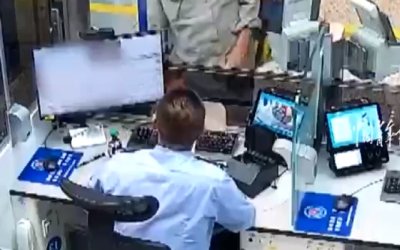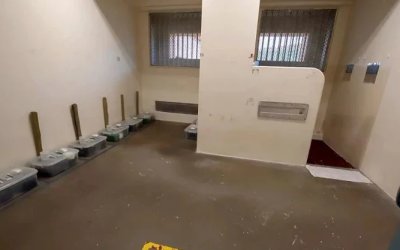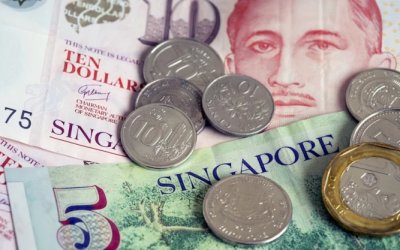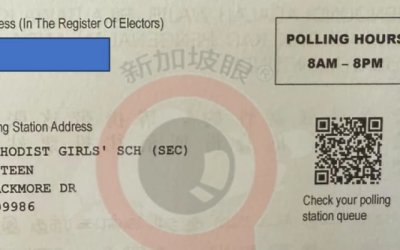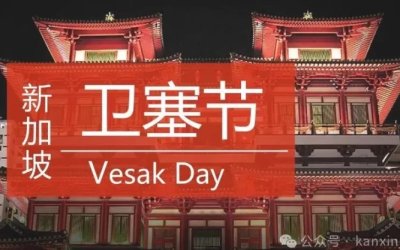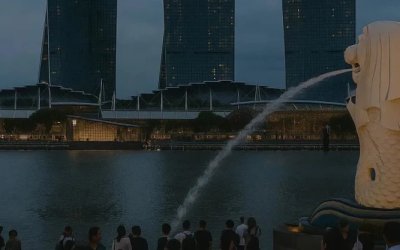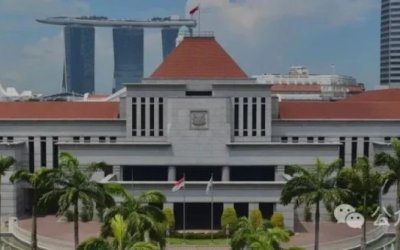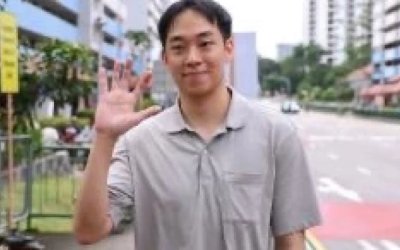即使在更大层面的政策上,西方也有和新加坡类似的例子。乔治·凯林和詹姆斯·Q·威尔逊于1982年发表了一篇名为《破窗效应》的文章,认为一扇破掉的窗户“就意味着没人在乎它,所以打破更多窗户也就不会有任何后果了”。从中得出的教训是:千里之堤,毁于蚁穴,所以一定要在事态扩大之前,用严厉的手段把小问题消灭在萌芽状态。纽约前市长鲁迪·朱利安尼称自己正是用这种方法降低了纽约的犯罪率,这听起来和新加坡也有点像。
Do fines work?
罚款有用吗?
At first, the policy worked, according to Liak Teng Lit, chairman of the National Environment Agency. A combination of public awareness campaigning and punitive measures made a difference. More people picked up after themselves. The city became cleaner.
一开始是有用的,新加坡国家环境局主席陆圣烈如是说。旨在唤醒公共意识的运动和处罚措施相结合,的确带来了改变。越来越多的人开始养成物归原位、井井有条的好习惯,城市也变得干净了。
In 1961, Singapore had a “broom brigade” of 7,000 day labourers who were directly employed by the department of health. By 1989, there were only 2,100.
1961年,新加坡建立了一支“清扫队”,由卫生部直接雇佣了7000名工人来做临时工。到1989年,这个数字已经降到了2100。
day labourer: an unskilled worker hired and paid by the day 按日计酬的临时工
But things changed. The city became wealthier, and it became easier to use low-cost labour to clean up. Nowadays, says Liak, Singapore isn’t clean because locals fear fines. It’s clean because there’s an army of workers scrubbing it. They do the heavy lifting. More than anyone else, they keep Singapore clean.
但后来情况发生了变化。这座城市变得更为富裕,也更容易雇佣廉价劳工来清洁打扫了。陆圣烈说,今天的新加坡之所以能干干净净,并不是因为人们害怕罚款,而是因为有一大波工人在仔细打扫,是他们承担了运送垃圾的重任。这些人对城市清洁做出的贡献,比其他所有的人都要大。
“Singapore is a not a clean city. It’s a cleaned city,” Liak declares.
“新加坡不是一座干净的城市,而是一座打扫过的城市。”—— 陆圣烈
There are 56,000 cleaners registered with the National Environment Agency. There are likely thousands of independent contractors who aren’t registered. Mostly they’re low-paid foreign workers or elderly workers. Taipei, by contrast, has maybe 5,000 cleaners, Liak adds.
国家环境局注册在案的清洁工有56000个,没有登记的独立承包人估计也有几千个。他们大多是低薪雇佣的外国劳工或上了年纪的工人。“但台北只有大概5000个清洁工。”陆圣烈补充说。
Edward D’Silva is frustrated about the way the rise of this army of cleaners has changed the culture in Singapore. With so many cleaners, Singaporeans came to regard cleaning up as someone else’s job. Today, Singaporeans often leave their tray on the table at hawker centres after eating a meal, because they don’t consider it littering, or they think it’s the cleaners’ job to clean up after them. (In fairness, tray return facilities were only installed in 2013.)
清洁工人数量的增加已经改变了新加坡的城市文化,爱德华·德西尔瓦对此很是懊恼。因为有这么多清洁工,新加坡人开始把打扫看成别人的事了。如今,新加坡人经常在吃完饭后把餐盘留在小贩中心的桌子上,因为他们不认为这是乱扔垃圾,或者他们觉得收桌子是清洁工的事。(说句公道话,餐盘回收装置直到2013年才开始普及。)
D’Silva says students don’t pick up after themselves either, because they’ve always had a cleaner to do it for them. It’s something the Public Hygiene Council is trying to address at local schools. Simply put, he thinks Singaporeans have had it too easy for too long, and they need to change. Liak agrees.
德西尔瓦说,就连学生也不会自己收拾桌子了,因为总有清洁工在后面帮他们收垃圾。这也是公共卫生理事会在当地学校教育中试图改善的一点。简单来说,他认为新加坡人的舒服日子过得太久了,需要做出改变。陆圣烈也同意这一点。
“The government cleans the apartment [building], right up to your corridor, typically twice a day. When you have a very efficient cleaning service, and your neighbour messes up the place, you don’ t blame the neighbour, you blame the cleaner for not picking it up,” he says.
“政府会打扫公寓楼,一直扫到你家门口,而且是一天扫两次。如果有这样高效的清洁服务,即使邻居把楼道弄脏了,你也不会怪他们,反而会责怪清洁工没有及时来打扫。”他说。
Changing behaviour
改变行为
In Japan, Australia or the UK, there isn’t the same availability of very low-cost labour to take on the cleaning jobs. In Singapore, cleaners are mostly drawn from a pool of roughly a million foreign workers as well as local aged workers. But as Singapore’s population grows and labour becomes more expensive, it simply won’t be affordable to employ so many cleaners.
在日本、澳大利亚和英国,没有同等廉价的劳动力可以承担清洁工作。而在新加坡,清洁工大多是从约一百万外国劳工和本地大龄工人中挑选出来的。但随着新加坡人口的增长和劳动力成本的上升,政府也承担不起如此多工人的雇佣费用了。
Edward D’Silva says part of the original push for a cleaner Singapore was economic. Cleaning public spaces is expensive and it takes money away from more valuable pursuits. He says that’s still the case, and Singapore needs to change its behaviour fast. Singapore spends at least SGD$120m (US$87m) a year on cleaning public spaces.
爱德华·德西尔瓦说,在起初推动新加坡成为清洁城市的改革中,部分是出于经济原因。公共场所的清扫工作耗资不菲,而这些钱本可以用来达成更有价值的目标。他说这一情况至今仍未改变,新加坡需要迅速做出改变。现在政府清扫公共空间的花费一年至少有1.2亿新币(折合8700万美元)。
“If you are able to instill and cultivate a habit whereby people don’t throw their litter anywhere and anyhow, then the money you would have otherwise spent to employ those cleaners, well, millions of dollars could have been better spent on health and education,” he said.
“如果你能激发并培养人们不乱扔垃圾的习惯,也就不需要雇佣那么多的清洁工,那用省下来的几百万推动健康和教育不是更好吗。”德西尔瓦这样说。
Cleaning up
清扫进行时
Lee Bee Wah is the local MP for Nee Soon. She’s at the clean-up day in Khatib. In fact, she attends at least one a month in her constituency. She’s passionate about cleaning up. She not only encourages her constituents to pick up litter when they see it, but also to speak up when they see someone littering and to report offenders to the authorities.
李碧华是新加坡义顺的地方议员,她也参与了卡迪社区的清扫日活动。事实上,她在自己的选区每个月至少要参加一次这样的活动。她对清洁工作热情满满,不仅鼓励本区的选民随手捡拾路上的垃圾,看到有人乱丢垃圾也会出言劝阻,并将其告到有关当局。
constituency /kənˈstɪtʃuənsi/ n. the body of voters who elect a representative for their area (选举国会议员的)选区; 选区的全体选民
She says public education is every bit as important as fines. In fact, it’s quite difficult to impose fines, because it often requires an official or at least a citizen to witness the offence.
她认为,公共教育和罚款条例的重要性是旗鼓相当的。实际上,落实罚款条例非常困难,因为这往往需要一个官员或至少一个市民作为犯罪目击者。
“It is better to convince them, to get them to buy in, rather than just to depend on fines,” she says.
